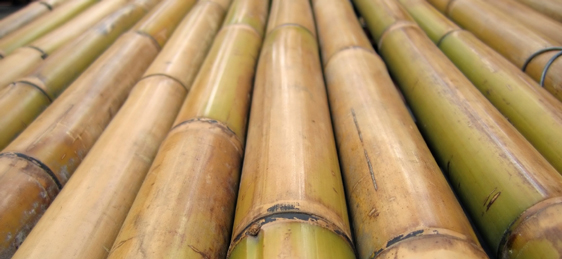 A customer in Goffstown, NH recently inquired about the unique look and feel of bamboo flooring for her bedroom. While bamboo does share many of the same characteristics of hardwood flooring, this homeowner’s inquiry made us cringe. Bamboo, while stunning, has many drawbacks and vulnerabilities when it comes to flooring.
A customer in Goffstown, NH recently inquired about the unique look and feel of bamboo flooring for her bedroom. While bamboo does share many of the same characteristics of hardwood flooring, this homeowner’s inquiry made us cringe. Bamboo, while stunning, has many drawbacks and vulnerabilities when it comes to flooring.
Bamboo Flooring at Risk for Significant Damage over Time
This flooring alternative can be easy to maintain from day to day, but over time it is very vulnerable to scratches and wear and tear. While in the wild bamboo is generally hard and durable, the carbonization process that is used to color the wood for flooring also weakens it. This makes bamboo a softer flooring, leaving it susceptible to damage.
Because of the softness of bamboo flooring, high heels, pet claws and even furniture legs can damage the floor. Tiny grit and dirt particles that normally accumulate in homes can also cause irreparable scratches on the bamboo.
Bamboo is also very susceptible to water damage. Excessive moisture can cause this flooring to warp or allow for conditions that are right for mold growth. Even high humidity levels can cause the floor planks to swell and shrink, resulting in unsightly cracks in the floor.
Durable Alternatives to Bamboo Flooring
The natural alternative to bamboo is hardwood flooring. Today’s hardwood floor comes in a variety of colors and styles that can offer the homeowner a truly unique look. Another option is LVP (luxury vinyl plank), which offers a similar look to hardwood without the high price tag.
After learning more about bamboo flooring, this Goffstown homeowner opted to go with LVP. She was still able to achieve that unique look but she can also be sure that her floor will look great for years to come.
